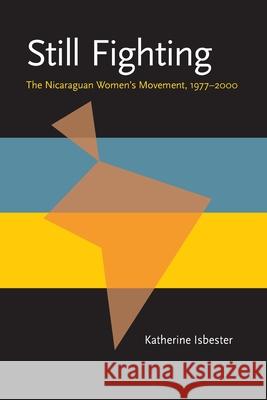Still Fighting » książka
Still Fighting
ISBN-13: 9780822957577 / Angielski / Miękka / 2001 / 272 str.
The story of the women's movement in Nicaragua is a fascinating tale of resistance, strategy, and faith. From its birth in 1977 under the Somoza dictatorship through the Sandinista revolution to the fall of the Chamorro government, the Nicaraguan women's movement has navigated revolutionary upheaval, profound changes in government, and rapidly shifting definitions of women's roles in society. Through it all, the movement has surged, regressed, and persevered, entering the twenty-first century a powerful and influential force, stretching from the grassroots to the national level. How did women in an economically underdeveloped Central American country, with little history of organizing, feminism, or democracy, succeed in creating networks, organizations, and campaigns that carved out a gender identity and challenged dominant ideologies (both revolutionary and conservative)? In Still Fighting Katherine Isbester seeks to understand. She analyzes the complex and rich case of Nicaragua in order to learn more about the dynamics of social movements in general and women's organizing in particular. Social movement theory offers Isbester an analytic tool to explain the extraordinary evolutio











